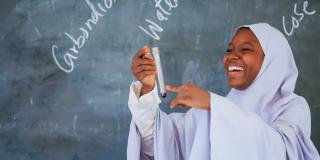
An innovative new way of bringing science education to schools in Nigeria's rural north could offer a way unlock future tech prosperity, explains Chief Executive Philip Goodwin.
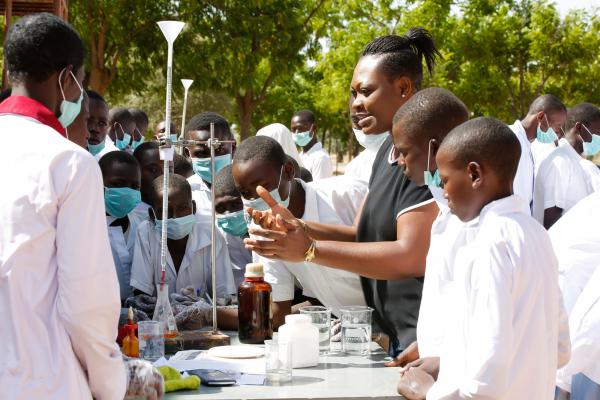
Science was one of the most fun subjects in school.
It was a guaranteed lesson in exploration. Learning about the human body, using experiments to test out ideas and watching various potions bubble away sparked a real sense of curiosity.
Science and technology is no longer the future; it is the present. The industry is expanding around us faster than ever before and skills in science, technology, engineering and maths (STEM subjects) are in huge demand.
Despite this, so many countries are cut off from learning about even the most basic advancements and opportunities. That's something we at VSO want to tackle.
Closing the science gap in Nigeria
Nigeria is Africa's most populated country with 158 million people.
With over 70% under the age of 35, young people are its biggest asset. Yet it's ranked 131 out of 139 countries in maths and science education.
It is widely believed that science and tech is the key to unlock development and prosperity in Africa. The potential for employment, resource management and healthcare is huge.
VSO has come up with a unique way to bridge the gap.
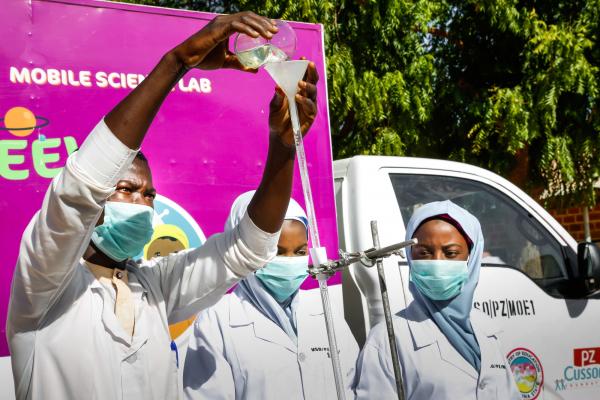
The laboratory on wheels
We are launching our Mobile Science Lab programme; a mobile van with a set of lab resources and a qualified teacher trainer to rotate between 15 schools reaching around 7,500 pupils and 60 teachers.
We'll be delivering it in Katsina State, North West Nigeria, home to the Hausa and Fulani tribes' rural farming and cattle rearing community. As one of the poorest states, the quality of education is incredibly low.
The mobile science lab is an interactive, get-your-hands-on-it learning experience. It'll introduce a better understanding of science, maths and technology, and excite more young people to explore the opportunities these subjects can offer them.
And, because it's on wheels, it'll be able to go to some of the most hard-to-reach schools. If it works, we'll start bringing vans to more schools around the country.
That's not all.
In 2011, VSO worked with the Ministry of Education and Nigeria's National Youth Service Corps to establish a National Graduate Volunteering programme. It recruits young Nigerian graduates who are on their national youth service to volunteer in schools for a year.
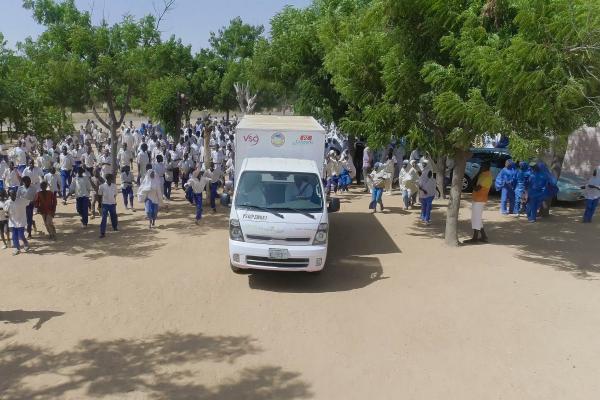
Building in sustainability
We provide quality training and mentoring in learner-centred methodologies, and post these recruits to rural placements to teach English, maths and science.
They are now part of the team delivering these mobile science labs.
Afterwards, they'll be part of a generation of young Nigerians equipped with the tools and passion to pursue science or teaching paths.
Reaching future Nigerian Nobel laureates
Only nine Nobel Prize winners in science come from developing countries. Most were working in developed countries at the time.
VSO wants to change that. Our mobile science lab will bring the joy and skills of experimental science to some of the world's most marginalised people.
Read more

The two volunteers empowering girls and young women in Mozambique
Nelma and Carmirene and are two volunteers working on VSO's EAGLE project in Mozambique. For Nelma and Carmirene, education is not just about school, it is about meeting people where they are and using the right tools to challenging harmful norms. Here are their stories.
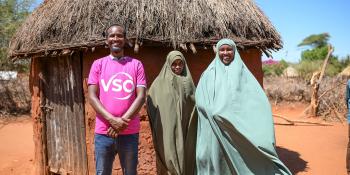
A ripple of change: how VSO volunteers are transforming communities
Every act of volunteering begins with a choice — a decision to act out of a desire to make a difference. Across the world, VSO volunteers are proving that one spark of action can ignite something much bigger.
Opening doors to safety, education, and a brighter future
For girls in Karamoja, the poorest region in Uganda, being forced into early motherhood is all too common. This Christmas, you can open the doors to Safety, Education, and a Brighter Future.
